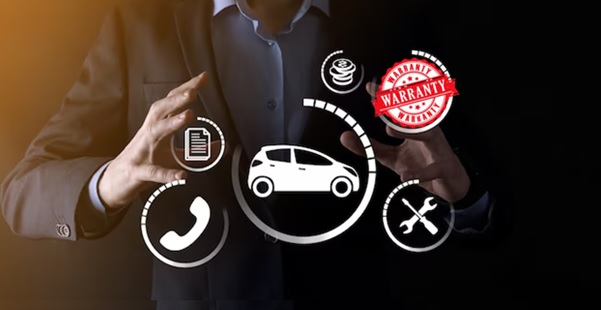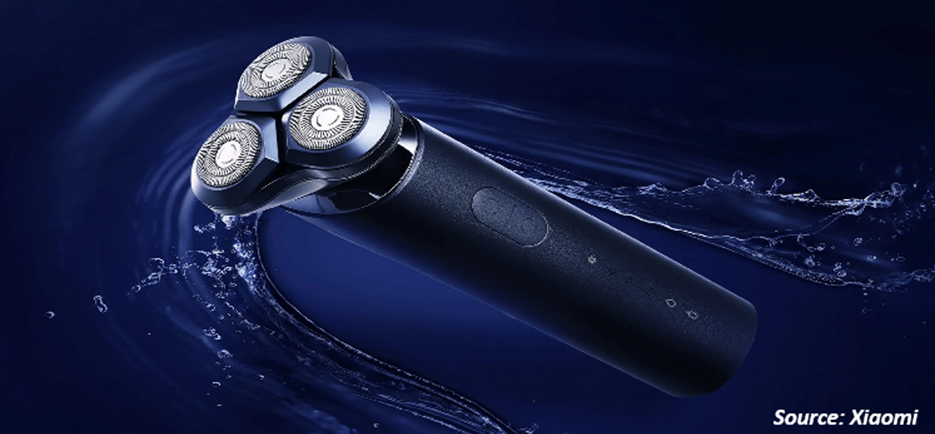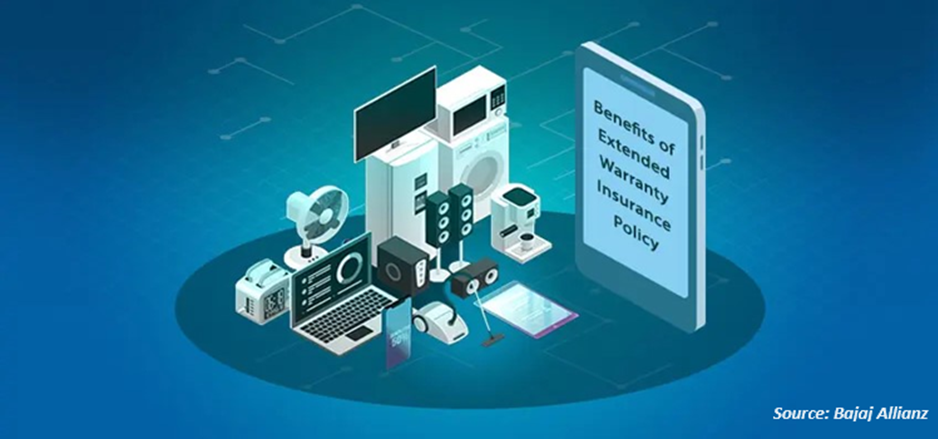Unveiling Current Trends and Future Innovations in Extended Warranties
05-Sep-2024

In today's dynamic landscape, extended warranties have emerged as a vital tool for safeguarding investments. Rapid technological advancements and shifting consumer expectations lead to the adoption of extended warranties. These warranties offer extended coverage beyond the manufacturer's warranty, providing individuals and businesses with invaluable peace of mind and financial security. This article delves into the latest developments and trends in extended warranties, shedding light on the evolving landscape of this industry and exploring what the future holds.
Enhanced Customer Support and Analytics through AI
The emergence of artificial intelligence (AI) has had a transformative impact on the customer support industry, and extended warranty providers are leveraging this technology to enhance their customer support services. AI-powered chatbots and virtual assistants are utilized to offer around-the-clock support, address customer queries, and facilitate the claims process, leading to improved efficiency and customer satisfaction.
AI-powered chatbots are computer programs that utilize machine learning and natural language processing algorithms for interacting with customers in a conversational manner. These chatbots are designed to understand customer inquiries, provide relevant information, and offer real-time assistance. By integrating chatbots into their customer support systems, extended warranty providers can offer 24/7 support, ensuring that customers can receive help whenever they need it, even outside of regular business hours.
Chatbots can handle many customer queries, such as warranty coverage, claims procedures, or product troubleshooting. They can provide instant responses based on pre-defined answers and frequently asked questions. Also, they can utilize machine learning algorithms to learn from customer interactions and improve their responses over time. This saves time for both customers and support staff and ensures that consistent and accurate information is provided to customers.
Virtual assistants powered by AI take the customer support experience a step further. These digital assistants are designed to simulate human-like conversations and provide more personalized support. They can understand complex queries, ask follow-up questions to gather more information, and provide tailored solutions or recommendations. Virtual assistants can guide customers through the claims process, helping them fill out forms, upload necessary documents, and track the progress of their claims.
Furthermore, AI-powered customer support systems continuously learn and improve from customer interactions. Machine learning algorithms analyze customer data, identify trends, and generate insights that can be used to enhance the support experience further. Over time, chatbots and virtual assistants become more accurate, efficient, and capable of resolving complex issues, improving customer experience.
By adopting AI-powered customer support solutions, extended warranty providers can save time and resources and deliver a more convenient, efficient, and satisfactory support experience to their customers. The integration of AI technology empowers customers to get the assistance they need when they need it, contributing to overall customer loyalty and retention.
In June 2023, a leading AI Platform for the automotive sector called FrogData announced the launch of WarrantyBoost+. This innovative product integrates warranty rate enhancement with a user-friendly Service Dashboard and Key Performance Indicator (KPI) tracking. By utilizing advanced AI-driven warranty analytics platform, dealers can anticipate quicker and more precise outcomes, resulting in an optimal warranty claim approval rate and enhanced profitability.
Embracing Blockchain for Transparency and Security
Extended warranty providers embrace blockchain technology to enhance transparency, streamline claim processing, and improve data security. With its inherent properties of immutability and decentralization, blockchain offers several advantages that can transform the extended warranty industry.
One of the key applications of blockchain in extended warranties is ensuring transparency in warranty contracts. Blockchain allows the creation of smart contracts and self-executing agreements with predefined rules and conditions. These smart contracts can be stored on the blockchain, providing a transparent and tamper-proof record of the warranty terms and conditions. This transparency helps build trust between providers and customers, as all parties have access to the same information and can verify the authenticity of the contract.
Using blockchain in claim processing can significantly streamline and automate the process. Claims data can be recorded on the blockchain, creating an immutable trail of transactions. This eliminates the need for manual verification and reconciliation of claims, as all relevant information is already recorded on the blockchain. The automated execution of claims through smart contracts ensures that claims are processed efficiently and accurately, reducing delays and potential errors.
Moreover, blockchain technology enhances data security in extended warranties. Traditional systems often rely on centralized databases that can be vulnerable to data breaches and unauthorized access. In contrast, blockchain operates on a decentralized network, storing information across multiple nodes. There is an encryption to each transaction and the linkage to the previous transaction, forming a chain of blocks. This decentralized and encrypted nature of blockchain makes it highly resistant to tampering and hacking attempts, ensuring the integrity and security of warranty-related data.
The immutability of blockchain transactions also plays a crucial role in reducing fraud in extended warranties. After recording a transaction in the blockchain, there is no option to alter or delete the transaction. This feature creates a tamper-proof record of warranty claims, preventing fraudulent activities such as falsifying claims or manipulating warranty terms. The transparency and auditability of blockchain enable easy verification of claims and ensure that the warranty provider and the customer have a shared and trusted source of information. By embracing blockchain technology, extended warranty providers can revolutionize the industry by fostering transparency, streamlining claim processing, and improving data security. Customers can have increased confidence in their warranty contracts, knowing that the terms are transparent and verifiable. The efficiency and automation enabled by blockchain reduce administrative burdens and enhance the overall customer experience. Additionally, the robust security features of blockchain contribute to minimizing fraud and protecting sensitive warranty-related data.
In April 2023, Wert and Avata joined hands to launch a new nonfungible token (NFT) warranty service based on blockchain technology to protect collectible digital assets of value and provide a sense of security and trust to active NFT collectors.
The Rise of Comprehensive Protection Plans
In the past, extended warranties primarily covered mechanical failures or defects in the product. If a device broke down within the warranty period, the warranty would cover the cost of repairs or provide a replacement. However, the industry has transformed, and extended warranties have expanded their coverage to offer more comprehensive protection plans. These modern warranties go beyond simple repairs and replacements and now encompass a broader range of services and coverage options.
One of the significant aspects of this shift is the inclusion of accidental damage coverage. In addition to mechanical failures, these plans now cover accidental damage, such as drops, spills, or other mishaps that can occur during everyday use. This means that if your device suffers accidental damage, the warranty will cover the cost of repair or replacement.
Moreover, theft protection has become a part of many extended warranties. If the product is stolen, the warranty will provide coverage to replace the stolen item. This offers peace of mind to consumers, knowing that their investment is protected against not only damage but also theft.
Another notable inclusion in modern extended warranties is software support. Software-related issues have become increasingly common as technology is more and more integrated into our lives. Comprehensive protection plans offer assistance and support for software-related problems, ensuring consumers receive guidance and troubleshooting for their devices.
The future of extended warranties lies in providing holistic coverage that addresses all aspects of a product's lifespan. Instead of focusing solely on repairs, extended warranties now offer services that cater to the diverse needs and potential risks associated with owning a product. This shift in focus aims to provide consumers with a more comprehensive and valuable protection plan, giving them peace of mind and maximizing the lifespan and usability of their products.
Integration of IoT and Smart Devices
IoT refers to the network of physical devices embedded with sensors, software, and connectivity, allowing them to collect and exchange data. Smart devices, such as smartphones, smart home appliances, or wearable devices, are examples of products that fall under the IoT umbrella. These devices have sensors and connectivity features that enable them to communicate and share information with other devices and systems.
Extended warranties are adapting to this new landscape by utilizing the connectivity and data exchange capabilities of IoT-enabled devices. This integration enables companies to monitor and diagnose the covered products proactively. Connected devices can continuously collect data about their performance, usage patterns, and potential issues. This data is transmitted to the warranty provider, allowing them to remotely monitor the device's health and detect any anomalies or potential problems.
With access to real-time data, warranty providers can offer remote troubleshooting and support. They can remotely diagnose issues, provide guidance for issue resolution, or initiate remote repairs or software updates. This eliminates the need for customers to bring their devices to service centers or wait for a technician to arrive, resulting in faster and more convenient resolution of problems than before.
Furthermore, the integration of the Internet of Things (IoT) technology with extended warranties enables predictive maintenance. By analyzing the collected data and utilizing advanced analytics techniques, warranty providers can identify patterns and trends that indicate potential future failures or issues. This allows them to proactively reach customers and address the problem before it leads to downtime or more significant damage. Predictive maintenance minimizes disruptions for customers and helps optimize the performance and lifespan of the covered products.
Conclusion
Extended warranties have evolved from mere add-ons to indispensable components of consumer protection and satisfaction. As the industry embraces the latest developments and trends, we expect extended warranties to offer comprehensive coverage, personalized plans, and seamless customer experiences. Integrating IoT, AI, and blockchain will further enhance the effectiveness and efficiency of extended warranties. The future holds immense potential for this industry as it continues to adapt to meet the ever-changing needs of consumers and provide them with the confidence to invest in the latest technologies.
About the Author
 Shankar Nishant is a researcher at Next Move Strategy Consulting with a cumulative experience of more than four years. Shankar is enthusiastic about new technology, enjoys working with diverse global clients, and has delivered numerous market reports in multiple domains. He can be reached at shankar.dutta@nextmsc.com
Shankar Nishant is a researcher at Next Move Strategy Consulting with a cumulative experience of more than four years. Shankar is enthusiastic about new technology, enjoys working with diverse global clients, and has delivered numerous market reports in multiple domains. He can be reached at shankar.dutta@nextmsc.com
Add Comment
Related Blogs
Key Companies Holds the Market Share of Around 50 percentage in Electric Shaver Industry – Here is why
The global electric shaver market is growing at a compound a...
Comprehensive Analysis of Leading US Giants in the Prepaid Cards Market
The global prepaid card industry estimated to cross the mark...
Discover How Allstate and AXA Are Powering the Growth of the Extended Warranty Industry
According to NMSC analysis, the global extended warranty mar...










